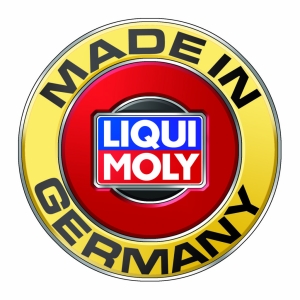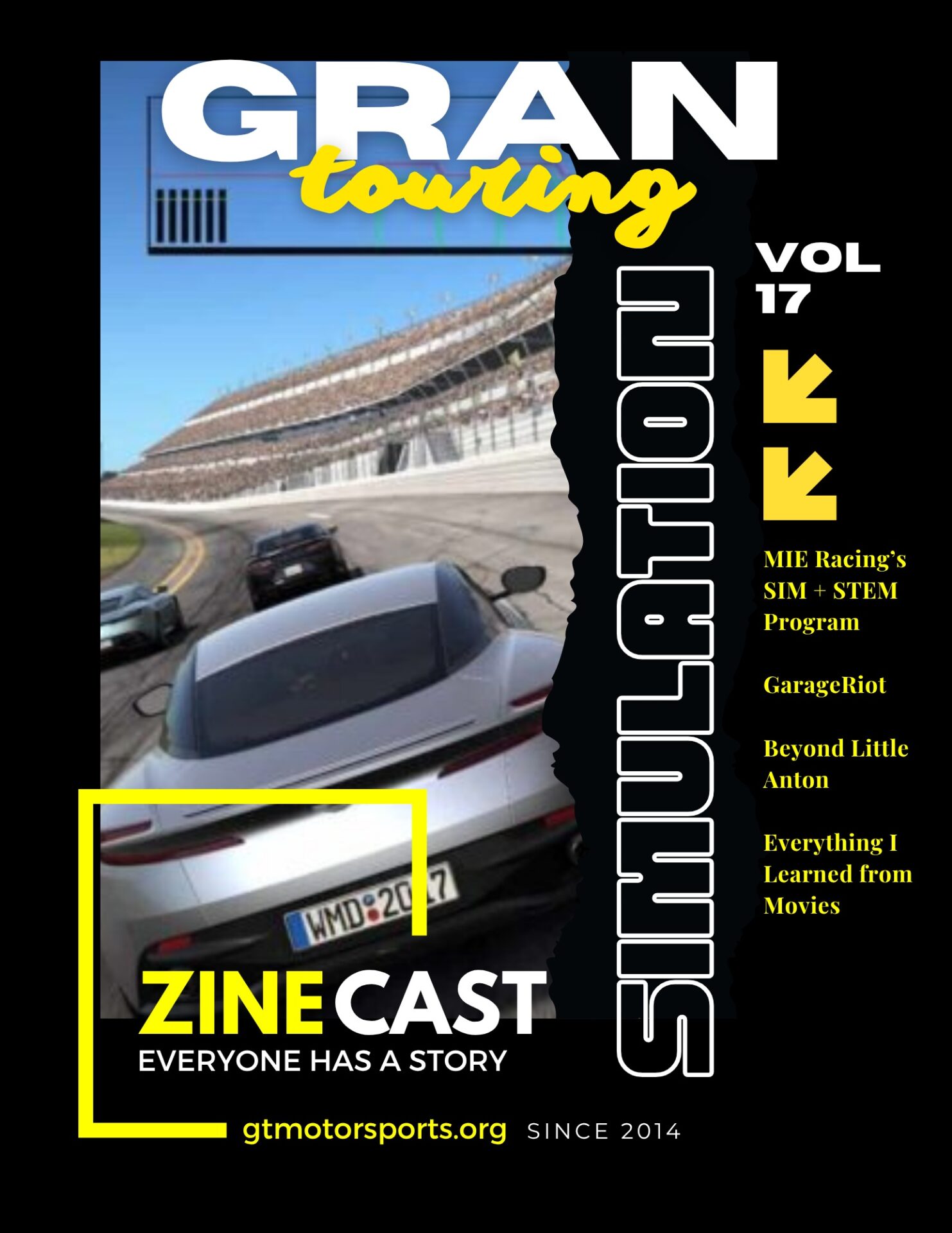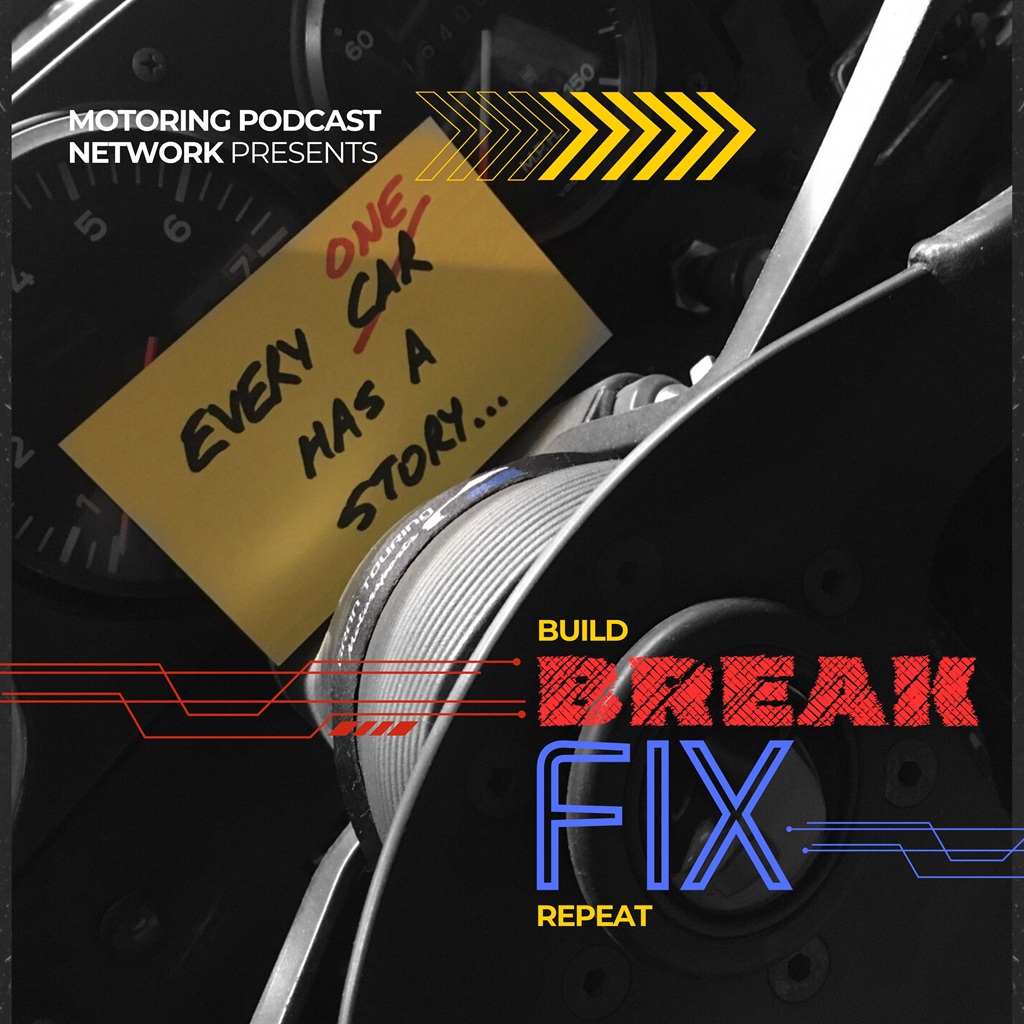For many of us, oils and lubricants are just a bottle of brown liquid you put in your vehicle occasionally— because, that’s what someone said you should do. Like your body, your vehicle, and especially your engine, needs to be in good health… which means understanding and choosing the right products as it’s lifeblood.
Tune in everywhere you stream, download or listen!
 |  |  |
- Spotlight
- Notes
- Transcript
- Highlights
- Learn More
Spotlight
Rob Longo - Regional Sales Manager for Liqui-Moly covering PA / NJ and DE for Liqui-Moly

Founded in 1957, Liqui-Moly has developed and produced oils and additives exclusively in Germany. With over 4000 products they offer a wide range of automotive chemicals that are unique in terms of Motor oils and additives, vehicle care and service sprays, greases and pastes as well as adhesives and sealants.
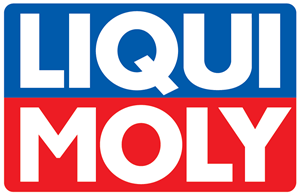
Contact: Rob Longo at rob.longo@liqui-moly.com | N/A | Visit Online!![]()
![]()
Notes
- Difference between Conventional, Mineral and Synthetic oils?
- Can you explain how oil weights work? 5w30, 0w40, etc.
- “Spec oils” – German manufacturers often have very strict requirements on what oil you should choose. How do you know?
- Gas engines vs Diesel engines – and their oils
- which is right for what application (street, vs track).
- How often does Liqui-Moly recommend changing oil in a vehicle? 5k, 10k, more?
- How would you compare Liqui-Moly offerings to those of Mobil-1, Motul, etc?
Where can you find Liqui-Moly products?
and much, much more!
Transcript
Crew Chief Brad: [00:00:00] Grand Touring Motorsports started as a social group of car enthusiasts, but we’ve expanded into all sorts of motorsports disciplines, and we want to share our stories with you. Years of racing, wrenching, and motorsports experience brings together a top notch collection of knowledge and information through our podcast, Brake Fix.
For many of us, oils and lubricants are just a bottle of brown liquid you put in your vehicle because that’s what someone said you should do. Like your body, your vehicle, and especially your engine needs to be in good health. Which means understanding and choosing the right products as
Crew Chief Eric: it’s lifeblood.
Founded in 1957, LiquiMoly has developed and produced oils and additives exclusively in Germany. With over 4, 000 products, they offer a wide range of automotive chemicals that are unique in terms of motor oils and additives, vehicle care. And service sprays, greases and pace, as well as adhesives and sealants.
And with us [00:01:00] to discuss the importance of these types of products is Rob Longo, regional sales manager for Liqui Moly covering Pennsylvania, New Jersey, and Delaware. So we want to welcome Rob to the show. Thanks for coming.
Crew Chief Brad: Yeah, welcome.
Rob Longo: Hey guys, thanks a lot. I appreciate you having me on today.
Crew Chief Brad: My first question for you would be, you know, how did you get into selling oils?
Is that a lifelong dream? You wanted to sell oils and lubricants or? Uh, absolutely not.
Crew Chief Eric: They’re lubes and specialty products. Thank you very much.
Crew Chief Brad: What was, was it your car? Are you a car enthusiast? First of all, you could just be a, an oil.
Rob Longo: Believe it or not, I am not a huge car enthusiast. I mean, I love seeing the cars I’ve seen over the last.
Five years because I pretty much seen every Ferrari and Lamborghini and every cool thing in between traveling across the country. So I got into the business. I was in the heating oil and which was just selling one product. He
Crew Chief Eric: was selling diesel
Rob Longo: and then I [00:02:00] started, uh, you know, moved to a new company.
They sold lubricants also. So I started to learn a little bit about lubricants and sold heating oil still most of the time. And then in 2010, I went to go work just strictly for a lubricants company. Uh, in Pennsylvania here.
Crew Chief Eric: Pennsylvania, the Germany of the United States. Yeah, I get it.
Rob Longo: More Volkswagens here than anywhere.
Crew Chief Eric: I, it is, it is true. You crossed the border and hit there everywhere.
Rob Longo: Was there for five and a half years, learned a lot about not only automotive, but on and off highway applications, industrial stuff. So just something that was a kind of cool niche kind of fit for me. And then, um, I was just, So fortunate to see that local Molly was hiring.
And I, uh, didn’t even know anything about them. So I actually saw their products at one of my customers. And I said, what is that stuff? He goes, this is the best oil I ever used. And I was selling another product and he would never touch it. And he said, [00:03:00] He goes, I swear to God, this is the best stuff I’ve ever used.
I, have no issues with this stuff. So I went on their website and I looked into it and then here I am five years later, so everything he said was true. That’s where I, when I hear on everywhere, I guess.
Crew Chief Eric: So Rob, the impetus behind this conversation is that, you know, most of us here at GTM are track rats and we are always in search of, you know, that.
Next best thing, the thing that’s going to make, you know, shave a 10th of a second off, that’s going to give us that extra longevity on the engine. You know, we’re always in search of cooler temperatures, especially when it comes to oils. So one of the things we were thinking was, you know, much to Brad’s point at the beginning of the intro, it’s because somebody told you to, and there’s a lot of fundamentals that are left on the table.
So I think we need to start from square one and talk about how. Not all oils are actually created equal. So let’s discuss maybe some of the differences between conventional, mineral, synthetic, etc.
Rob Longo: Motor oils consist of base oils and [00:04:00] there’s five groups of base oils that make up motor oils. Group 1, 2, and 3 are what we would call conventional base oils.
Those are the crude oils that are found from the ground. Group four is a synthetic base oil group. Four oils are PAO based. So those are the true synthetics. Those are basically crude products that are kind of torn apart, put back together again. And form a much better, more concise base oil and then group five is really a grouping of all other ones that can’t be classified through one through four.
So esters, glycols, so on and so the difference between these is then you have the refining of the conventional crude oils. Depending on how well they’re refined, that gives you a different quality between group one, group two, and group three being the best of the three. So I’m just going to break it [00:05:00] down to the basic between conventional and synthetic oils.
I’ll kind of simplify it a little bit more just to kind of keep it flowing and not get too overly technical. So mineral and conventional are one and the same. The main difference between conventional oil and synthetic oils is
Crew Chief Brad: that
Rob Longo: The base oils that are used in conventional oils are from crude oil.
Whereas the synthetic oils are manmade and manufactured to create a better, more stable environment for the additives that are going to be used with those base oils.
Crew Chief Eric: So Rob, you touched on a couple of things there. You’re talking about additives and the different base components of the oils themselves.
What are the additives for? I’ve heard things like, you know, you hear the commercials all the time, makes your engine run cleaner and all these kinds of things. Are they detergents? Are they ways of changing the viscosity of the oil? Do they affect the temperature range of the oil? What are they all about?
Rob Longo: Yeah, so the additives that are used to create motor oils. Do a number of [00:06:00] different things. There’s detergents, there’s dispersants, there’s viscosity improvers, there’s pour point additives. So these different additives are going to either let the oil flow at a colder temperature, remain more stable at a high temperature.
They’re going to help remove sludge, lacquer, varnish. They’re going to prevent foaming. And there’s tons of additives that do, um, you know, a lot of different jobs within the motor oil. So that is a very important piece when you’re looking at which motor oils you do choose to use.
Crew Chief Eric: So is more additives better or not necessarily?
Rob Longo: No, typically with most motor oil products, the base oil is about 80 percent of the oil and then 20 percent of the additives. So with all the different manufacturers, the additive packages really vary based on the manufacturers, the types of engines that you’re [00:07:00] putting the oil into, of course, what kind of conditions, you know, racing compared to street compared to daily driving.
So there’s a lot of factors that come into. How a manufacturer goes to create an oil and what audience they’re really trying to target as well. But most of the time, like I said, it’s probably like an 80, 20, 75, 25 percent split between base oil.
Crew Chief Eric: The obvious base oils for certain manufacturers, let’s just say mobile one, they’re going to get it from Exxon and Rotella is going to get it from shell.
Right. And I’m sure BP has a, has a line of oils as well. Where is Liqui Moly getting its base oil from before it starts? Or is that kind of super secret information?
Rob Longo: We do not drill. We, we do no exploration if you will. So we buy the base oil and additives that are on the market. We choose to buy the best available of both so that we could make a better product as far as not [00:08:00] necessarily against the competition.
We make every product ourselves in Germany. We do not contract any of our products out to other blenders throughout the world. We make everything in Germany. So that product that you’re going to get in Philadelphia is going to be the same one in Stuttgart. In Moscow and Alaska and South Africa, wherever you are, that Lysol off five W 40 or that Molly gen five W 30, whatever product it is.
It all comes over from Germany to wherever it’s going to finally land. So we take a lot of pride in making our own motor oils because it’s quality assurance. You know, we know exactly what that product is going to be everywhere. You know, that’s, that’s really just an important piece of our, of our company that we’re really proud of.
proud of, but for us, as far as something that is going to hold up and give you the peace of mind and the results that you’re basically looking for in an engine [00:09:00] oil. So we’re going to create a product that offers the most protection and fits your vehicle the best that we can. Now, the thought of putting more additives into anything doesn’t make it a better product.
It has to adhere to all the different specifications of the manufacturer. So, they may not want that much detergent in that particular oil, or they may not want this or that. their oil is where another manufacturer would say, yo, we really want that. That’s why you see so many different oils out there to begin with, because there’s really a lot of different moving pieces, if you will, with all the manufacturers and what their demands are.
We base our products on what the manufacturer.
Crew Chief Eric: So it’s a great segue into my next question, spec oils, right? So for those of us with European cars, more specifically German cars in the last 15 years, if not longer, there’s been a lot of mandates to use [00:10:00] specific or spec oils for certain engines for certain cars.
And so they have very strict requirements on what you should choose and what you should use. So how do you know? Yeah, I bought a used Porsche or a Volkswagen or a Mercedes. How do I know? Where do I find this information? And what does that spec actually mean? And is there any cross compatibility and how do I find out if the Liqui Moly products are compatible or the right oil for those applications?
So do you want to kind of unpack that for us a little bit?
Rob Longo: Yeah, sure. So, so first of all, Liqui Moly offers a online Pretty much every vehicle is covered that, that we have access to as far as all the information, which will break down not only the engine oils, but your gear oils, your transmission fluids and power, steel and fluid, for instance, and some other when you’re buying a car.
And the first thing that probably only going to have is the manual more or less. And it’s going to tell you, okay, let’s use Volkswagen for an example. And it’s going [00:11:00] to, you have a 2005. Jetta gasoline and is, let’s just say it’s requiring a VW 502 specification. So we have products that will list all the approvals that we have by each of the manufacturers.
Some products are more specific to one or two applications. Some are multiple applications, um, that not only cover one manufacturer, but several manufacturers. So the first thing that you would do is you would just enter your car information and then a list of oils would come up that would be the appropriate oils for your vehicle.
Secondly, you really need to be aware of what the specifications are for your vehicle because There’s been plenty of times I’ve spoken, uh, you know, I’ve met you guys at BAG Fair. I do shows all over, you know, the Northeast every year. You know, the first thing they said is, oh, I just use a 5W30. [00:12:00] And they don’t know which kind.
Most of the times it’s the wrong kind when they do tell me what brand they’re using. So it’s very important because they’re not equal, that there’s not one fits all for any of these categories. So
Crew Chief Eric: when you’re talking about the right application for the vehicle, I’m going to assume that most Liqui Moly products are probably synthetics, not a conventional oil, like a Pennzoil or Valvoline or what a Quaker state, that kind of thing.
So what if your vehicle was originally equipped with the conventional oil? Is there a conversion there to the Liqui Moly? Is there a Is there a reason people should be apprehensive to switch?
Rob Longo: The rule of thumb with converting from a conventional to a synthetic is really based on the age of the vehicle.
Probably when you’re talking about, you know, 70 or 1970s, 1980s, up to the late 80s, You should use a conventional product because of the seals and the gaskets that were used at that time. If there’s any compatibility issues, [00:13:00] then, you know, you’re going to have issues with your vehicle, of course. So we basically like to say that you’re probably looking at mid to late nineties, as far as using synthetics.
Um, Where we feel comfortable enough that we would say that’s appropriate. Uh, and once again, the best thing to use is our oil guide, because it will tell you yes or no, we do make other products other than full synthetics. Now we only offer a couple in the United States and, but they are geared towards older vehicles.
So we make a 20 W 50, for instance, and a 15 W 40 and a 10 W 40. And those products are either. conventional mineral oils or a semi synthetic in the 1040 case. So, so that’s really where you want to start. It’s not something that you’re automatically going to say, okay, now I, you know, everything’s synthetic.
I want to put it in my 85 Prada or something to that effect. So, you know, it’s, you have to be really careful with that. And those oils there do offer [00:14:00] the mineral oils and those applications are to be for those
Crew Chief Brad: cars for sure. And I also heard Just to, to throw something else out there right now, uh, that if you do make the switch, say your car is able to run, run and, uh, use, uh, the synthetic.
I’ve always been told it could be an old wives tale that you can’t ever go back to conventional once you make the switch to synthetic.
Rob Longo: No, that’s not true. Basically, all you have to do is flush your engine and you could, could go back and forth. There’s typically no reason to do so, but you know, you should really stick to one or the other.
And if it allows for synthetic synthetic’s usually gonna be deep. The best product for the
Crew Chief Eric: vehicle and to Brad’s point, so for the racers that are listening, you know, there’s a lot of rules to with building new motors, fresh engine. So, you know, if you’re having it done professionally, you know, listen to your builder.
They’re going to tell you what to use. I went through this myself with a, with a professionally built engine where, you know, I had to start with break in for a very short period of time, then go to conventional. Then I had to use diesel. Then I had [00:15:00] to go, like you had to build up to like a fully ester based synthetic.
You could not go from day one all the way to that cycle oil. So there’s something to be said about those transitions and building those steps. A lot of it has to do with seeding the rings and like, to your point, new seals and all that kind of stuff. So, you know, talk to different people about that. And obviously, you know, Liqui Moly is going to have different products along the way.
You might not start with a Liqui Moly product, you know, you’re breaking oil Or whatever it might be, but eventually you will build up to those higher end oils that are going to be better for your engine, you know, in the long run, especially in a track type of application. But I think you hit on something really important though, and it’s kind of innate.
In the language of oils, we’re always shouting out these 10 W and five W and zero and this and that, all these numbers. And I think confusion is always wrapped around that. What does that actually mean? And why have the oil numbers and ratings? change so much in the last five years?
Rob Longo: [00:16:00] Yeah, it’s a great question, and we’ll start with basically what those numbers mean.
So we’ll use a five W 30 for an example. So the first number five W that’s what they used to call the winter weight. So that’s the viscosity of the oil when it’s cold. So you want a thinner oil when it’s cold, when you start the engine. So it reaches the furthest lubrication point as quickly as possible.
The second number, the 30 is when the temperature, when the engine is at operating temperatures. And you want the oil to be thick enough. So it goes from low to high. So think five as being water and maybe 30 as being honey. It will start to thicken. And then when it’s thicker at operating temperatures, it’s going to create what we call boundary lubrication.
That’s going to keep those parts from sliding against each other. It provides a wedge between all the moving parts. Throughout the engine.
Crew Chief Eric: And it’s [00:17:00] interesting you bring that up because that’s chemically the opposite for any of the foodies out there that are listening of what you would experience in your kitchen.
Crew Chief Brad: I was just about to say, that’s the exact opposite of what I thought it was doing.
Crew Chief Eric: Right. Because you know, when you’re in the kitchen and you, you get a bottle of olive oil or canola or Wesson or whatever, you know, corn oil, they all have different viscosities because as you heat them up, they get thinner.
So it’s kind of interesting that as you heat up motor oil, it actually thickens up.
Rob Longo: Yeah, right, right. So, right, you know, it’s, um, you know, the most important thing is just to get that oil moving as quickly as possible. And then at the operating temperatures to protect the engine as best as
Crew Chief Eric: possible. And you know what else adds a layer of confusion for anybody that’s listening to this.
I’m sure now they’re going, wait, the oil thickens as heatens, but my oil pressure gauge is high when it’s cold and it’s low. When it’s hot. So it’s all kind of down.
Rob Longo: Yeah, exactly. So, you know, that’s really basically how [00:18:00] the, uh, that number system works to your, um, question about seeing the numbers getting smaller and smaller.
Zero W 20 way is really the main oil of these days. And it’s really come around to the European models now as well. So that is just based on they’re building Smaller engines that are putting out more power, more heat, the oil needs to flow. The tolerances are much tighter now. I know everyone that I talked to thinks, Oh my God, it’s crazy.
What’s it going to be next? Water, you know, it’s getting so thin going back to our, you know, our first conversation about, you know, base oils and additives that they are so well made these days that they can really hold up to pretty much anything that you throw
Crew Chief Brad: at. Um, well, I’ve got two questions off of this conversation.
First one is what viscosity would you say is like the most common? Like I, when I look around and seeing people change their oil, everybody’s buying [00:19:00] 5w30. It seems like that’s like the most common viscosity. And then my next question is if you’re in a pinch, you’re stranded, you need oil somewhere, If they say they don’t have what your, what your manufacturer recommends, which way do you go one way or the other?
If they have something like, how would you base what your emergency oil is? If you don’t have what the actual manufacturer spec is.
Rob Longo: So over the last few years, I would say 5W 30 and 0W 20 are probably the top two viscosities that we see out in the market. If you’re talking European, there’s still quite a bit of 5W 40 that’s there and is, and is approved for, for use right now.
So the question that you ask Brad is, is not a yes or no or simple answer. Because let’s use an example. Let’s use a, a more modern car a a 2015 VW Jet. Okay? Engine doesn’t matter. It’s calling for a 5 0 2 oil spec [00:20:00] in the world of Volkswagen, zero W 30, a five W, 30 A zero W 40, and a five W 40. Can all carry that same approval.
I know that’s not going to help the layman out there much if they’re trying to decide what they’re looking for, but that’s why it’s really important to know what oil is for your vehicle, because you obviously don’t want to cause damage.
Crew Chief Brad: Yeah, I
Rob Longo: don’t want to say in a pinch do whatever you need to do,
Crew Chief Brad: obviously, instead of a specific.
Oh, well, if you’ve got a 5w30 and they don’t have it go to a 520 or something, would the recommendation be to go like a thinner oil or a thicker?
Crew Chief Eric: So to go with what Brad’s saying, uh, not to steal, you know, Rob’s thunder here, but I’ve always heard that you based it on the second number. So if you can find something else, that’s a 30.
It doesn’t matter if it’s a zero or a five, you’re still looking at the card operating temperature more than at cold temperature in most cases. So go with a 30, go with something that matches the second number as much as possible. And if you’re going to go [00:21:00] and correct me if I’m wrong, Rob, if you can’t find, you go up, you go thicker instead of thinner.
Rob Longo: Correct. Don’t go lower. Yeah, you never go on. You’re not getting proper lubrication. Yeah, because then you could really, you could get some, you could really do some damage to your engine. Thicker is going to be fine. And if it’s something like you can’t find a European oil for that, then, then you can use a 5W 30 in a pinch that’s designed for Asian and American.
Crew Chief Eric: So just to, just to clarify, because we, I think we’ve touched on this, but just for our audience. The smaller the number, basically the thinner the oil. Let’s just put it that way to keep it simple, correct? So some of the older numbers are starting five, you know, 15 W 50, and like all the, you’re starting to be harder and harder to find those numbers.
So in those cases, to your point, go back, talk to your builder, look at the motor, see what the seals can tolerate, go to thinner oils, but again, we can mix and match and things like that. You’re right. You’re seeing a lot of zeros out there. I happen to use zero W 50. 40 myself [00:22:00] seems to be the best range for some of the older Volkswagens, especially the VR sixes.
But the question is with all these oils and all these weights, you know, we understand there’s different additives. We understand there’s different flow rates and things like that. Does it change the heat tolerance of the oil? That was the other wives tales about the weight is a thicker oil can withstand more heat, you know, things like that.
Is that true? Or is that just a myth?
Rob Longo: So to my knowledge, it’s always been a myth. It goes into the design of the products themselves. So if that particular oil has an additive package, there’s technical information as far as what kind of temperature ranges oils have and things like that. But typically it’s just going to be the way that the products are made now, that those additives in the base oil, it doesn’t matter as far as that goes.
It’s really more of a myth.
Crew Chief Eric: And then there’s, then there’s the other one, right? You guys out there, you know who you are when I’m about to say what I’m about to say, there’s those guys that are like, I put Rotella and everything doesn’t matter [00:23:00] what it is, what year it is. I just buy 5 gallons of Rotella from tractor supply.
And that’s what I put in the car. And I cringe every time I hear that. Whatever. I’m a little bit more specific, you know, in my applications, but that’s a lot of times people don’t realize either. You know, there’s the blue Rotel on the white Rotel and that’s gas versus diesel. And a lot of people will throw diesel oil in a gas motor and you hear people fight back and forth about that.
The advantages of diesel oil over over gas oil, you know, all these kinds of things. And so let’s kind of dispel some of those. Myths as well, but also talk about, you know, the good, the bad, the indifferent of just using, okay, I just buy five gallons of the same oil and I use the same thing all over the place.
Rob Longo: Yeah. And you know, it’s a common question when I’m at a shop or I’m at an event, the main differences between a gas engine oil and a diesel engine oil is something called the SAPS level. It’s sulfated ash phosphorus and sulfur and [00:24:00] gasoline engines. Like more saps than diesel engines, particularly now the clean burning diesel engines with the DPF filters.
So that’s why it’s extremely important to know which product you’re using. I don’t recommend a domestic diesel. Oil in a European car, because it does not have any approvals. It’s not recommended for those applications. And you could have issues, you know, if we’re talking about racing and there’s no catalytic converter, or, you know, we understand that.
And we had that conversation quite a bit, but I I’m speaking to the daily driver, as much as I am speaking to someone that’s on the track. And the bottom line is that when those additive packages are incorrect for your car, that’s when you’re going to have issues with. More sludge, more lacquer, more varnish, loss of performance.
And then, like I said, it’s, it’s going to hit you in the, in the exhaust as well, because that is something that is not supposed to be in there. And that car was not made to take that [00:25:00] product, you know, that particular type of oil. So extremely important, you know, years and years ago, it was much more lenient as far as, okay, you could throw something in everything.
And that was. really the way it was, but over the last 20 years, particularly, you need to be exact with what your car requires because you can prematurely damage your engine at night. So try to save you some money and, you know, try to look out for it because that’s something that it’s a huge expense and, and, you know, oil in the grand scheme of things.
It’s not that expensive, no matter which brand you’re loyal to or which one you buy. I mean, we know we love you to buy ours. We know it’s a little bit expensive, but the point of it is that we’re making products because we know that they are approved by the manufacturers for those
Crew Chief Eric: applications.
Absolutely. And I think a lot of people don’t realize that there’s spec oil for diesels as well, especially Europeans. I mean, I happen to have been through a bunch myself. I’ve got a Jeep. That’s [00:26:00] got a VM Motori diesel in it. So that the diesel grand Cherokee, that’s not a Benz motor, but the Benz CRDs are out there.
Volkswagen’s have specific diesel oils, the Audi’s all that kind of stuff. The Porsche’s, you know, anybody that’s running a European diesel, you got to make sure you pay attention to that spec other things I’ve learned about these oils along the way is they’re very high in zinc. Right. And so, like I mentioned before in a race motor, I used a European spec diesel oil in my race motor because it was a benefit to the rings to seat them on a brand new engine.
But you only kept it in there for like 500 miles. You’re doing like 10 oil changes in a thousand miles, you know, type of deal, but it makes all the difference in the world. So, but the other thing too was I had to run the car hard. And I also noticed something that is true even in my Jeep is that Diesel oils have a very wide and varying heat range and they do not hold up well on the track.
So if you’re a track rat and you’re buying five gallons of Rotella, be careful with that because it’s very easy to hit 300 [00:27:00] degrees because that diesel oil does not do well with high heat. The same is true. I experimented with oils that fit my VM Motori V6 turbo diesel. And I found one that dropped me almost 20 degrees under load, you know, towing up a hill, going to Watkins Glen.
And I was like, this is the one, this is the one that’s going to work. Because again, I’m trying to save the engine, you know, from all that extra stress and everything I’m doing. So I think it’s, to your point, it’s super important to look into that stuff. Some of it might be trial and error, you know, maybe Liqui Moly checks the boxes.
Maybe it doesn’t, you know, but you gotta have, you know, Data to support what you’re doing, not just kind of blindly saying, Oh, I’m just going to put in whatever and it’ll work. Right.
Rob Longo: Right. Correct. And to your point on that also is a 15 W 40 is a mineral oil. Most of the time to this day, they’re going to break down faster than a synthetic one.
They’re not made for heat. Like you said, you know, so they’re, they’re, they’re going to break down. They’re going to oxidize. And then you’re going to have those issues, which you’re talking about. [00:28:00] And now in a track environment, you know, you’re warming up your car. You’re not just leaving the driveway to go right onto the track.
So, but in normal life, those oils will break down sooner because they’re not very well made to take the cold. And they’re not very well made to take the heat. It’s very important and you should definitely look into products that have a long history. You know, our products have been around since 1957. So we’ve had a lot of R& D.
They’ve been on the track. Our products are the same products that we use for the daily driver as the track. And that’s really important to us. You know, we don’t make a racing oil because our regular oil is our racing oil. It’s that good and it’s holed up and we do dinos and we do a lot of testing with it.
So invest in your oil. I think that’s the most important message here. Don’t. Don’t just go with whatever anyone said to you. It’s okay to break some trends down.
Crew Chief Eric: I think you brought up two, two kind of fun questions [00:29:00] based on that. Would you pull the drain plug on your motor and run your liquid, you know, your engine on just whatever’s left of liquid Molly in it. Is that advisable in any case? I would not advise anyone to do that,
Rob Longo: but if I was going to do it, I would probably add our MOS2 additive first with the oil, because that will give you a little bit extra protection.
You know, it’s a funny thing. When I first started, we actually had, we still have a campaign call. I, I use it and that could be for a consumer, a shop doesn’t matter. We had a, we had a gentleman out in California that did an oil change on a Honda Civic and. He went something to, I want to say about five or 600 miles and realized he’d never put any oil in the car.
He only put the MOS to add it and he had no issues whatsoever, which was just that’s amazing. And, um, I mean, we do not recommend that do not do that at home.
Crew Chief Eric: And that was, that was really a jab at those commercials from like the early 2000s, if you remember what I’m [00:30:00] talking about. But the other thing is, you know, in that same kind of, you know, comedic vein, I’ve seen a lot on Instagram and I don’t remember if it’s Liquimal and you can correct me.
Are you guys the ones showing a green oil or is that just photoshopped?
Rob Longo: No, that’s Molly Jen. Yeah, that’s our Molly Jen line of oils. And that contains a fluorescent dye, which is great for leak detection, believe it or not. So when you first put it in the vehicle, you know, you use a black light and you could detect it.
physical leaks from the vehicle. It doesn’t last very, very long. So, you know, you need to do it right when you, when you put the oil in. The Molygen oil is, is a very good product. It contains an additive already in it, an anti friction additive. We’ve had a lot of success with that, you know, on the performance side.
People really like it. Uh, and we make viscosities from zero 20 up to five W 50. And that’s a very good product. Yeah, for sure. For me, that would
Crew Chief Eric: be super confusing if my power steering pump was leaking because power steering fluid I use is dark green. So I’m [00:31:00] like, wait a minute.
Rob Longo: Well, even, even to your point there, even some of the, you know, some of the manufacturers themselves, the automotive manufacturers.
Audi Volkswagen, for instance, one of their oils has to have a green dye. It’s something that we are starting to see a little bit more of the, I guess, the OEMs, if you want to say, the manufacturers themselves using some coloring. And it makes sense too, I guess.
Crew Chief Eric: Which brings up a really great point. Are there any cars from the factory coming with Liqui Moly on board?
Rob Longo: No, we do, we do not, um, we don’t have a, uh, a factory fill program. If you will, our products can be used for factory fill. If need be most of the times, most of the manufacturers have several oil companies that they’ll use depending on where they are. So we don’t write it anywhere on the cap or anything like that.
We’re, we’re not a, an official global partner. We do have the approval. So that’s something that, you know, we like just to focus more on. Building a better product and making sure that we [00:32:00] have the best approved product that we could come out with. And I think that’s really, you know, over the last five years, I’ve been with the company.
You know, the feedback I get is the reason I love my job. I could tell you everything until I’m blue in the face, but it’s, it’s the people I meet at bag fair or impact up at Pocono Raceway. Waterfest shops. I go into going to pick up my dry cleaning. I had a guy like I love your products, you know, and I said, thank you.
You know, I mean, that’s that is the, um,
Crew Chief Eric: as we wrap up this segment. I have 1 more question before we go into the next 1. you know, we talked about additives earlier on and you mentioned street and track. So are there specific additives, you know, since you said you have kind of based one base oil for everything, you know, there isn’t a race oil versus the street oil, it is the one stop shop.
Are there certain additives you would recommend for street use over track use or vice versa?
Rob Longo: So we’ll talk about engine oil additives. Of course. I mean, like we, we make 4, 000 products as you has mentioned in the [00:33:00] opener. So for our engine oil additives, we have the MOS two anti friction. Engine oil treatment, and we have serotech.
The MOS2 is the moly and lipo moly. It’s what started the company. It originally started as an ad. Any of you chemists, it’s molybdenum disulfide. It’s very similar to graphite, if you will. So if you’ve ever felt graphite, it’s very slick and slippery, but it stays in place for a very long
Crew Chief Brad: time.
Rob Longo: That product could be used in any engine, from basically any timeframe.
It could be a gas, it could be diesel. To get to your point as far as what’s better for daily driving or track or whatever the case is, it really depends on what you’re doing and the age of the vehicle. So for track purposes, if you’re doing drag racing, we typically recommend MOS2 because you’re going to be changing the oil out more frequently.
If you’re using it for a couple of days and you’re going to drain it out, it’s just, all you have to do is just, you know, replenish it the next time you change your oil. Cause it will all fall out when you do your oil change. Now, Ceratec is a little bit [00:34:00] different technology. It’s a ceramic based technology.
So that will actually adhere to all the, it will plate itself to all the metal throughout the engine. It takes heat and pressure for that to set up properly, which will take a few hundred miles. For you to use that in a drag racing scenario, for instance, it’s not going to do you any good because it’s just.
Not going to have time to set up.
Crew Chief Eric: But it’s like three sessions in road racing. So you’re good to go there.
Rob Longo: You’re good to all day. Yeah. Right. So the beauty of that product is that that plating onto the metal will last up to 30, 000 miles. Now I know we don’t keep files, but 30, 000 or every fourth oil changes our rule of thumb as far as using Sarah tech, and that does a great job.
And now I’m going to kind of go back to what you’re trying, what you’re asking a little bit. Because the additives really do help in keeping your engine temperatures lower, gaining a slight bit of horsepower. When you keep things from sliding against each other, you’re creating less heat, lower [00:35:00] operating temperatures.
So you’re going to get some noticeable differences when you use some of the additives with our oils. A lot of times the oils do a great job on their own, but. The additives with the oil is making it just a credible product.
Crew Chief Eric: So let’s unpack that just for a second. So you would not make sero tech and M. O.
S. two, right? It’s one. You would not.
Rob Longo: Okay. The reason why you wouldn’t because they’re competing for the same amount of space within the engine. So if you already had MOS2 in there, the Ceratec would have nothing to cling on to, and you would have spent a good amount of money for nothing, you know, and you don’t want to, you don’t want to combine them.
Crew Chief Eric: If you haven’t made the switch to Liqui Moly yet, can you still use MOS2 or Ceratec with a competing oil? Well, it’s still working.
Rob Longo: Yeah. Uh, those products are completely safe with any conventional or synthetic oils that are on the market. So you’re absolutely can use the additives alone and not have to use [00:36:00] the engine oils.
We obviously think it’s the ultimate package if you use our stuff altogether, but there’s no reason why you should not be able to use, uh, you know, you’re, you’re more than able to use our additives in any.
Crew Chief Eric: Now in the advent of more and more engines, like you said, smaller engines making more horsepower, that’s basically because of more and more turbochargers being introduced since the early 2000s, especially on street cars, which is the preferred additive, or is there yet another additive specifically for forced induction vehicles that help with some of the heat that we end up with with a turbocharger?
Rob Longo: Well, the MOS two and the, uh, Sarah tech are going to do a really good job of getting with throughout all of the oil lines and throughout the entire system. So that’s going to be your, pretty much your first step as far as really trying to help as far as protecting it as best as you can from the heat that you’re dealing with.
And I
Crew Chief Eric: bring that up. I bring that up because a lot of people do not realize. You know, they bought a car with the turbo and they’re like, [00:37:00] wow, instant power and all these kinds of things. They are more often than not oil cooled and sometimes hybrid oil and water cooled, depending on the manufacturer, the turbo and whatnot.
So again, this all leads in that conversation is, you know, learning a little bit more about your, your engine bay and what’s going on in there, but oil is vital. It is literally the lifeblood of your motor. So it’s important to have the right products in there and protecting that. Again, kind of going back, would you prefer one over the other for a turbo motor?
Would it be the Sarotech over?
Rob Longo: The modern vehicles, we really like using Sarotech and your everyday application, or like I had said, your more endurance track racing, things like that, because it’s really going to have the time to set up properly. You’re not. ever going to be wrong with using the MOS2 additive as well.
It somewhat comes down to, you know, how often you change your oil and some of these other things that, you know, that are individual. So if you’re changing your oil every 3000 miles, even though you don’t need to do that for a daily driver, you know, oil drain intervals were [00:38:00] 10, 000 miles or whatever they are.
They’ve been tested on turbos over and over. So we have. That’s on all of our product information sheets, that’s perfectly safe for those applications. And they’re both going to do an excellent job. You just Saratec with that plating and in the other areas of the engine really does provide that extra protection where the MOS2 does a nice, well, general, you know, coverage as far as comparing the two with each other.
Crew Chief Brad: So how often does Liqui Moly recommend changing oil on a vehicle 5, 000, 10, 000 more? I think the old adage was. You know, with conventional oils back in the day, it was every 3, 000 miles. You had to change your oil. Obviously times are different now with technology and everything.
Rob Longo: So our oils are designed to meet the manufacturer’s recommended oil trade.
So we have an approved product for a particular Mercedes model, and it says that the 10, 000 mile oil change that oil is designed [00:39:00] to go 10, 000 miles. Now oil changes, you know, to an individual, you know, if you do a more or less, that’s up to you. You also have to take in consideration what kind of driving you’re doing now, you know, there’s severe There’s moderate and there’s light driving.
Highway miles is light driving. It’s not a lot of wear on the engine. Stop and go in New York City is severe. Your manual will tell you, okay, 10, 000 for light, 70, all right, these are examples of course, so about 10, 75, 800, and then maybe 5, 000 for severe. Pretty much standard across most of the manufacturer’s information that I’ve come across.
So what you could do if you want to. Test your boundaries is oil analysis, oil test. We have oil testing, but it has to go all the way back to Germany. So I think the best way is our friends at Blackstone that everyone uses. I mean, there are neutral companies, so you just send your, you send your stuff there and you get a great [00:40:00] result back.
Or, I mean, my company car is a 2015 Honda CRV. the 10, 000 mile oil change interval. I have 172, 000 miles on it. I sent my oil for analysis at 10, 000 and they said I could go to 12, 000 with a Liqui Moly product. It’s our AA020 for Asian and American vehicles. But
Crew Chief Eric: for those that haven’t done an oil test before, what’s the expectation?
What are they going to get back from Blackstone as a result? What’s it going to tell them?
Rob Longo: You know, first of all, they put a nice paragraph on top and they kind of explain, you know, what’s going on, you know, so they’ll say, okay, everything looks good. You know, there might be a little bit of a fuel dilution or there might be some little minor things here and there, but otherwise everything looks good.
They’re going to break down what the measurements below that paragraph will say. And that’s going to tell you. Basically what your additive package still is within the engine oil, it’s going to tell you that. And then it’s also going to see if there’s wear metals that are being produced. [00:41:00] Okay. So if there’s a lot of iron, they’re going to say, okay, you have an issue here.
They might tell you to shorten your oil change interval, or, you know, maybe recommend using another product or whatever the case is, but they have the basic data of, of the products already. Right. So they’re just measuring it against what the basis and what the normal ranges should be for those products.
So they’re going to say, okay, well this, your calcium levels fall within play. They’re just going to break down presence of different chemicals and metals and tell you if something is really detrimental or they’re going to tell you, you know, everything looks pretty good. Keep going. And if you want to try to push it, that’s fine.
Or, or you’re right there. Don’t do it. I did this stay at 10, 000, whatever the case is.
Crew Chief Eric: I’ve also heard there’s early indicators for potential blown head gasket. They’ll tell you if there’s water in the oil, you know, stuff like that. Other things. Yeah, right.
Rob Longo: Glycol, you know, other things, you know, coolant shows up and everything else, right?
Those are the things that you’re going to say, okay, well. [00:42:00] That should not be especially the metals, you know, cause then you’re having where if you’re have high iron levels or aluminum or something to that effect, they’re going to say, okay, well, this is probably coming from this area of the engine and you should take a look at it, you know, just keep that in mind.
Crew Chief Brad: So we’ve been talking about engine oil, but what about like gear oils and transmission oil and transmission fluids and stuff like that? There are a lot of cars that are being shipped with no drain plugs. We had a member in the club asking questions about this just recently. How can he install a drain plug in his transmission because there isn’t one and he wants to change the fluid.
Is there really such a thing as a lifetime fluid? It’s a great question.
Rob Longo: The manufacturers have deemed that that way. I think it’s critically important to change those fluids when they’re supposed to be changed out. So I, if there’s access in some way, if you could siphon it from the, from somewhere, then that would be, you know, my, [00:43:00] my recommendation is changing it out.
So, uh, a good mechanic will find a way what I’ve heard, but yeah, I think
Crew Chief Brad: we, I think we came to the solution of using a, a reverse pump or what was the transfer transfer
Rob Longo: transfer pump, right? Yeah. So, you know, you know, those are things that, you know, they need to be changed out just like any other fluid needs to be changed out in the vehicle.
They collect debris and they are. They have a function. They have a, they have a similar function to motor oils in a lot of ways. They’re really there to protect the mechanisms that are working. You know, those are additive packages and gear oils and transmission fluids also. And if those, those are depleted, then they’re not doing their job.
So by all means, you know, there should be a schedule for that.
Crew Chief Eric: So one other question to go along with this. I’ve also heard as Important as the oil is in the testing that we talked about are the oil filters themselves because they too are not all created equal. So first question, does Liqui Moly sell their own brand of oil [00:44:00] filters?
And if not, is there a recommended partner, you know, oil filter that would go well with the oil that you guys supply?
Rob Longo: We do not. Make filters. I would only recommend those really quality filters that you’re already aware of without mentioning names. So there you go.
Crew Chief Eric: So hot take their spend more get better products or nothing.
Crew Chief Brad: Nothing that starts with an F and is orange. Is that what you’re saying? Can I confirm or
Crew Chief Eric: deny? No, no, but I buy those 50 cent clearance oil filters. What are you talking about?
Rob Longo: Right next to the gum,
Crew Chief Eric: right?
Rob Longo: Yeah,
Crew Chief Brad: they’re basically just solo cups.
Rob Longo: Yeah, but you know, in all seriousness, if you’re using a filter that.
I think they’ve dialed back some of the old drain intervals, you know, BMW is doing 15, 000 miles. I want, you know, you have to have a good quality filter. You can’t buy the cheapest thing. You get what you pay [00:45:00] for. That’s what it comes down to a lot of the time. So absolutely anything with oil, you don’t want to cheap out on.
Crew Chief Eric: With service intervals getting longer and longer, it makes sense to buy better quality products that will last 10, 12, 15, 20, 000 miles per service change, you know, so it’s kind of interesting.
Crew Chief Brad: Yeah. Your, your, your filter, your oil and your filter are much cheaper than a brand new motor. A
Crew Chief Eric: hundred percent.
Crew Chief Brad: That’s my argument every time.
Crew Chief Eric: And you also have to go back to the old. Miles or months too, because I learned this on my wife’s hybrid where the electric does a lot of the work. The motor is kind of sitting, you know, it’s turning the oil pump circulating because the motor is turning with the hybrid or whatever, but the motor is not actually running.
It’ll come up and say, it’s been a matter of time, whether you’ve done the miles or not. It’s time to get the oil out. Right. So it’s something to keep an eye on. And if your car sits for a long time, you should also consider a time interval. The longer the car sits because water will get [00:46:00] absorbed from, you know, barometric pressure changes and humidity changes and weather and all that kind of stuff.
You know, other things will change. The oil will sludge up just sitting there, heat and cold, you know, without the motor running. So something else to consider when you’re doing your service intervals, but, you know, let’s get off of that. Let’s switch gears yet again. We’ll put it in third this time. And let’s talk about how Liqui Moly products and offerings differ and compete against some of the well known brands that we probably use today.
And maybe, you know, give us your pitch. Why should we switch to Liqui Moly?
Rob Longo: I can’t name names. So I’ll just say. To be fair, that goes back to the base oils and the additives. As far as what packages you buy, I used to use like ketchup as an example, but that’s subjective because you might like the taste of hunts better than Heinz or something like that.
So I like to, even though most people would say Heinz, but there will be always the one guy that would, especially at a, would say, oh, I, you know, I buy the store brand. I don’t care. But, but, but [00:47:00] my point on that is really that, um, the way I like to really compare products would be diamonds because diamonds are What they are, you know, I don’t know if you have like the jewelry exchange out there or you’ve seen those commercials and you can get a two carat diamond for 9.
99.
Crew Chief Brad: Yeah. And
Rob Longo: you know, a two carat diamond is probably 20, 000. So the point of that being is that the differences in diamonds are always the clarity, the cut, you know, we’re not going to throw the carrots in there, but it’s always. how clear it is, no blemishes, those kinds of things. And I, that’s really how we try to, that’s how I really wanted to say how we make our oil.
We, we try to just use the best. And that’s how I try to compare it as far as having something of a high quality compared to like There’s oil all over the place. There is differences between all the brands. Once again, the quality is of the utmost importance [00:48:00] and we make every product ourselves and we do buy the best base oil and additive packages that are available on the market.
To ensure that you’re getting the best protection for your vehicle. It’s important to really take care of it. We’ve done a lot of research and development as far as to see how the oil holds up in various applications, whether it’s on the track, whether it’s a dyno, whether it’s a daily driver, doesn’t matter.
It’s something that we take a tremendous amount of pride in making, trying to make the best product that’s out there. So it’s something that. We have gotten tremendous feedback, whether it’s a shop, whether it’s a do it yourself person, you know, a DIY, you know, they feel the difference that that’s the thing I hear the most.
They really feel the difference between using our products and a competitor. They feel it running smoother. They’re hearing less [00:49:00] noises. You know, they’re the valve train is quieter timing belts, not making as much noise as it used to. So The benefits of using better products is that it does actually help to improve some of those situations that do come up.
And, and then like I said, it’s really something that you have to, you have to try yourself. It’s too big of an investment not to bend a little bit more to ensure that you’re going to have your car running the way it wants to be. I mean, that’s, that’s how I like to see it.
Crew Chief Eric: We know as petrol heads is that we become very brand loyal, right?
And when you, when you marry yourself to a brand, you kind of go all in.
Crew Chief Brad: That’s why I’ve had five Volkswagens.
Crew Chief Eric: But, but to, to that point, I mean, you know, you start buying oil, then you want the filters, then you want the brake fluid, then you want the transmission fluid and you want the grease and, you know, and you start wearing the polos and the t shirts and the hats and the stickers and it’s all downhill from there.
It’s turtles all the way down. So. That kind of begs [00:50:00] the question of the 4, 000 products that Liqui Moly offers. Do they offer stuff for motorcycles, boats, small engines, lawnmowers, two strokes, maybe the occasional Mazda rotary. I mean, does it, is it really a one stop shop?
Rob Longo: It’s a one stop shop. We have in the United States, we’ve launched our marine segment, our power sports segment.
We have, we have American and Asian diesel gasoline. We have every, every segment pretty much covered in the States here. And of those 4, 000 products, we don’t have that many of those. I mean, that’s, that’s what’s in Germany, but just based on what we have here, I mean, We have the majority of the European market covered.
Of course, you’re going to the track and you’re dragging your car in a, with a power stroke or a Cummins diesel. We have an oil for, or if you’re going to use your, uh, ATV, we have oils for all these things. So
Crew Chief Brad: do you have oils for the dreaded [00:51:00] rotaries?
Crew Chief Eric: That’s two stroke oil. What are you talking about?
Crew Chief Brad: It needs to be something special to keep those seals from blowing out.
So our 10 W 40 all day, I’ve been told. So,
Crew Chief Eric: so it brings up a, Rob, you bring up a really great point, right? You’re going to the track or maybe you’re going on autocross or the drag strip, or even if you’re, you’re going to work, right. And you run Liqui Moly. Something goes pear shaped. You realize you’re a quart low for some reason.
Maybe your motor eats oil. It’s not Liqui Moly’s fault, but you know, you’re at the track. Something happens. You can’t just run out to the local parts store oftentimes and get Liqui Moly products. I’ve seen competing products. I mean, obviously you can pick up, you know, the Havilands, the Valvolines, the mobile ones, the even Pentason sometimes that, you know, Pep Boys, if you, if you find one nearby and sometimes Napol carry that kind of stuff, right.
You know, this is just past experience, but I don’t come across Liqui Moly very often. If we want, if somebody wants to make the switch, how do you go about finding the products are all 4, 000 products available? Can we look at a [00:52:00] catalog? Is there an online store? You know, is there a dealership network we have to go through?
I mean, obviously we have a relationship with FCP euro and we know that they’ve got liquid plastered all over their cars and everything up there. And that’s great. So how do we go about, you know, getting the products if we want to make the switch?
Rob Longo: Yeah, absolutely. So the, the, the best way to do that is to go onto our website.
We have a oil locator. Put your zip code in and you choose how many miles you are, you know, you want radius as far as what you’re looking for. And we have it by shop and by retail. So it’ll bring up a list of retailers in the area. It’ll also bring up any shops that are omo shops that they use our products.
So if you’re not handy with a wrench like myself. But you want to find, you want to find someone that is using a, you want to find a good shop that’s using lithium moly products, then that’s the easiest thing to do, you know, of course the internet’s a big world, FCP [00:53:00] of course is, uh, you know, we have many e commerce companies that are selling our products.
And if there’s anyone, any shops that are listening to this today, there’s also wholesalers that sell them. The great thing over the last five years. Since I’ve been with Wickle Molly is that the products have become much easier to find. Sometimes you just have to ask, you may not see it on the shelf, but that doesn’t mean they don’t have it in the back.
And that’s a lot of times how you’ll find it. But yeah, but your first step, definitely go onto our site and put your zip code in and then a whole list of shops and retailers.
Crew Chief Brad: What are the requirements to become a retailer of Liqui Moly?
Rob Longo: You can always give us a call. We’ll be happy to talk to anyone that’s interested in distributing Liqui Moly products.
You know, that’s the best way to start. We’ll put together something that might work for you and go from there.
Crew Chief Brad: I mean, I’m, I’m ready to start. Chopping for some Liqui Moly. I know
Crew Chief Eric: I was thinking the same thing. I was like, I got to get some [00:54:00] Saratex stuff. Cause I’m still at that stage with the new motor where I haven’t switched to my final oil yet.
I’m actually, between you and me, I’m running 0W40 mobile one, because that’s the last stage before I can go to Esther oil. I had to run that for like basically a season. And last season sucked and the car stayed parked and I ran the other one instead. So, but yeah, so, and that’s where I come to an impasse, right?
Because I was a mold tool, you know, 300 V for the longest time, but a high horsepower turbo motor, it’s the one that gave me the lowest oil temperatures. And I was like, ah, that’s what I’m going to use. It’s expensive as all get out. It’s like. I don’t know, 40 a liter or something insane, which is still cheaper than the brake fluid I use, but you know, Hey, whatever.
So Rob, you know, like we said at the top of this conversation, we’re always looking for that extra 10th of a second. We’re always looking for those extra couple degrees, you know, something give us that competitive edge when we’re out there, whether it be at the drag strip, whether it be road racing, time trials, or even really on the street to give us those extra couple of years.
out of a [00:55:00] car that we wouldn’t normally expect. So, you know, I think this has been a really great conversation. I think our listeners have probably learned a lot along the way about the different types of oils and what they should be looking out for. And I think we’ve dispelled some myths along with all that.
So, you know, everybody, if you’re interested in learning more about LiquiMoly, maybe this is the first time you’re hearing about the brand, be sure to check out their website, www. liquid. com. So that’s L I Q U I dash Molly M O L Y. com. So liquid dash molly. com and check them out on Facebook or Instagram at liquid molly.
usa. canada, or check out our follow on article for a bunch of information about the brand, about the products and how to get in contact with Rob, if you have more questions,
Rob Longo: like you guys were saying, follow us on Instagram and Facebook and. We post everywhere that we’re going to be. There’s 30 of us out in the country.
And we’re usually at some event on a weekend when it’s nice [00:56:00] out. Stop by and say hello to all of us. We love talking to, you know, our fans. And, uh.
Crew Chief Eric: So Rob, can’t thank you enough for coming on the show. This has been fantastic. Very informative and an absolute pleasure.
Rob Longo: Guys, thanks so much for having me. It was a truly amazing experience.
I hope to see everyone at some events and by the tracks, uh, trackside this year. So. Let’s get out there.
Crew Chief Eric: Absolutely. And we’d love to have you at one of our events. Maybe come out and talk to people about Liqui Moly right there at the track. So any
Rob Longo: day you just tell me I’ll be there. Thanks.
Crew Chief Brad: If you like what you’ve heard and want to learn more about GTM, be sure to check us out on www. gtmotorsports. org. You can also find us on Instagram at Grand Touring Motorsports. Also, if you want to get involved or have suggestions for future shows, You can call or text us at 202 630 1770, or send us an email gtmotorsports.
org. We’d love to hear from you. [00:57:00]
Crew Chief Eric: Hey everybody, Crew Chief Eric here. We really hope you enjoyed this episode of Break Fix, and we wanted to remind you that GTM remains a no annual fees organization. And our goal is to continue to bring you quality episodes like this one at no charge. As a loyal listener, please consider subscribing to our Patreon for bonus and behind the scenes content, extra goodies, and GTM swag.
For as little as 2. 50 a month, you can keep our developers, writers, editors, casters, and other volunteers fed on their strict diet of Fig Newtons, Gummy Bears, and Monster. Consider signing up for Patreon today at www. patreon. com forward slash GT Motorsports. And remember, without fans, supporters, and members like you, none of this would be [00:58:00] possible.
Highlights
Skip ahead if you must… Here’s the highlights from this episode you might be most interested in and their corresponding time stamps.
- 00:00 Introduction to Grand Touring Motorsports
- 00:59 Meet Rob Longo from Liqui Moly
- 01:14 Rob’s Journey into the Oil Industry
- 03:15 Understanding Motor Oils: Conventional vs Synthetic
- 05:34 The Role of Additives in Motor Oils
- 09:44 Choosing the Right Oil for Your Vehicle
- 12:14 Switching from Conventional to Synthetic Oils
- 15:59 Oil Viscosity Explained
- 23:43 Gasoline vs Diesel Engine Oils
- 30:35 Exploring Molygen Oil Benefits
- 31:24 Understanding Oil Additives
- 32:53 Engine Oil Additives for Different Uses
- 38:25 Oil Change Intervals and Analysis
- 42:15 Transmission and Gear Oils
- 43:46 Choosing the Right Oil Filters
- 46:13 Finding and Buying Liqui Moly Products
- 54:41 Conclusion and Final Thoughts
Learn More
 Bonus content available as a #PITSTOP mini-sode.
Bonus content available as a #PITSTOP mini-sode.Consider becoming a GTM Patreon Supporter and get behind the scenes content and schwag!
Do you like what you've seen, heard and read? - Don't forget, GTM is fueled by volunteers and remains a no-annual-fee organization, but we still need help to pay to keep the lights on... For as little as $2.50/month you can help us keep the momentum going so we can continue to record, write, edit and broadcast your favorite content. Support GTM today! or make a One Time Donation.

If you enjoyed this episode, please go to Apple Podcasts and leave us a review. That would help us beat the algorithms and help spread the enthusiasm to others by way of Break/Fix and GTM. Subscribe to Break/Fix using your favorite Podcast App:
 |  |  |
Founded in 1957, Liqui-Moly has developed and produced oils and additives exclusively in Germany. With over 4000 products they offer a wide range of automotive chemicals that are unique in terms of Motor oils and additives, vehicle care and service sprays, greases and pastes as well as adhesives and sealants.
There’s more to this story…
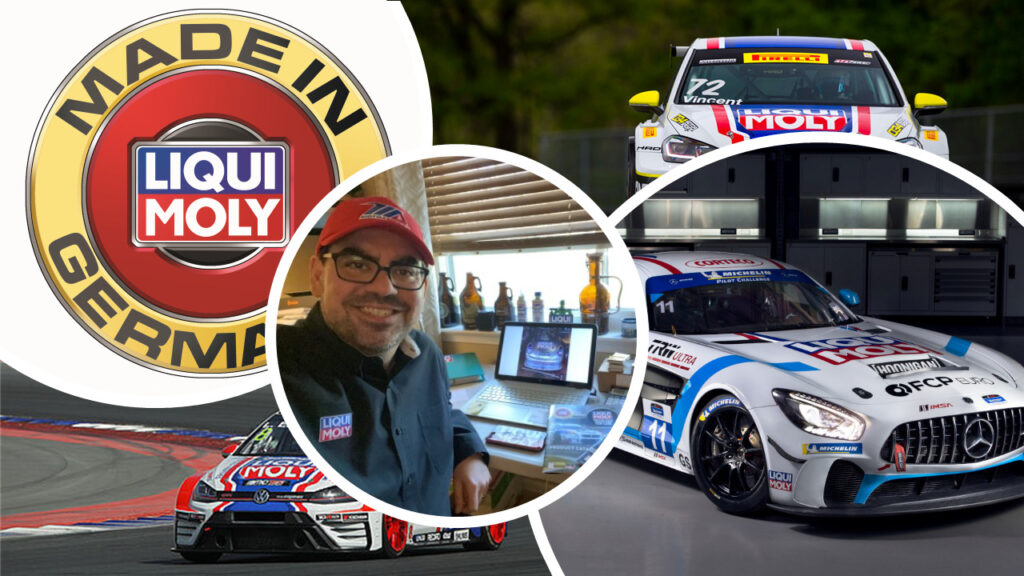
Some stories are just too good for the main episode… Check out this Behind the Scenes Pit Stop Minisode! Available exclusively on our Patreon.
GTM is proud to be an official FCP Euro reseller one of many great places to shop for Liqui-Moly products. We look forward to their successes this season in their new GT-class Liqui-Moly Mercedes!

This content has been brought to you in-part by sponsorship through...
 |  |  |  |



